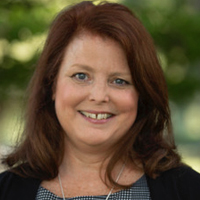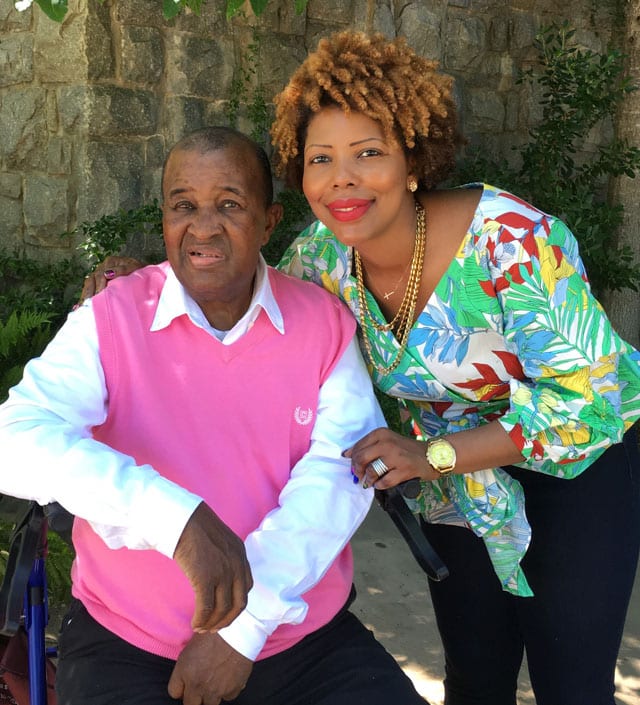
For the first time that I can remember in my 25-plus-year career, informal or “family” caregiving is getting a great deal of attention in the media and elsewhere. Until now, the nearly 42 million friends and family who provide care for older loved ones have been essentially an invisible army.
Despite this lack of visibility, family caregivers are the backbone of our long-term care system. Without the care they provide, which is often unpaid, our healthcare system would be overrun and many people would have to rely on institutionalized care in order to be able to live.
Pandemic Exacerbated Challenges
The pandemic has certainly been a factor in highlighting the role of family caregivers. It has exacerbated the challenges of providing care, particularly to older adults who have been considered the most vulnerable to the COVID-19 virus.
In addition, a great deal of attention has been paid to the effects of the pandemic on female caregivers. Due to the increased demands for child care and elder care placed on them during the pandemic, a large number of women left the workforce to be able to better manage these responsibilities, undoubtedly putting a financial strain on many families, as well as many employers.
While highlighting the detrimental effects of the pandemic on female caregivers is critically important in driving systems-wide change, solely focusing on women puts male caregivers at a greater risk of becoming even more invisible. Traditionally, women have been looked to as providers of care in our society.
However, the demographics of caregiving are changing. According to a recent report by AARP and the National Alliance for Caregiving, men now make up nearly 40% of the caregiving force in the U.S., up from 34% just a few years ago.
As family sizes have continued to shrink and the aging population has continued to increase, men have risen to the occasion, by choice or by necessity, to take on the role of caregiver. Traditionally, male caregivers provided mostly “hands-off” care, such as managing finances, arranging for medical services and providing transportation. Today, men are providing a great deal of the critical “hands-on” care, such as bathing, dressing and toileting.
As caregiving tasks have become less gendered, so has the caregiver burden. Currently, a significant percentage (20%) of men provide care for two or more people at the same time.
A majority of men who are caregiving are also employed. However, they tend to work more hours per week than their female counterparts.
Similar to women, men report that their caregiving responsibilities affected their work in significant ways, such as going in late, leaving early or needing to take time off. While not quite to the same degree as women, about 15% of male caregivers have also reported taking a leave of absence or reducing their employment due to caregiving.
(Ask questions to Molly directly and caregiving coach Annalee Kruger by registering and attending our upcoming webinar, led by Rethinking65 editorial director Jerilyn Klein.)
Caregiving Can Be Rewarding
Although caregiving can be stressful, it is important to note that it can also be a very rewarding and positive experience. A recent survey conducted by NORC at the University of Chicago found that caregiving changes men’s attitudes towards care. Interestingly, the men who participated in the survey who were actual caregivers viewed caregiving as part of a relationship rather than merely low-value work, which was a view held by a general population of non-caregiving men in the survey.
Furthermore, being caregivers shifted men’s attitudes towards their own abilities as caregivers. They no longer thought women, alone, were better suited to provide care. It also deepened their bond with their families.
Employer Flexibility Is Key
I have been honored to know some amazing male caregivers. A colleague of mine currently cares for his seriously ill wife, while also caring for son with special needs. I can count on one hand how many times I have seen him without a smile. He is, by far, one of the most upbeat and optimistic people I know.
Due to the flexibility of his employer, he is able to juggle work and caregiving responsibilities. This was especially helpful during the pandemic when his daughter’s school was doing remote learning. Fortunately for him, he is in a position to continue to work from home and is allowed flex hours when needed. Sadly, for many men, this is the exception rather than the rule.
He often tells me how blessed he feels to be able to play such an important role in his family’s life. He also knows how important he is to his wife and son, so he makes sure he takes care of himself. He commits to working out daily and taking time to ride his bike on the weekends.
Additional Reading: Men Can Have a Terrible Time Transitioning to Retirement
As the aging population continues to grow, it is important to understand the crucial role that both men and women play in today’s care economy. As time goes on, there will be a greater need for an extraordinary number of caregivers.
Normalizing the role of men in caregiving will allow for public policymakers and employers to enact policies that support men and women equally. When both sexes are supported equally as caregivers, families, as well as society, benefit.
This month (November) happens to be National Family Caregiver Month. Let’s make an effort to bring caregivers out of the shadows. Consider reaching out to a caregiver you know, male or female, and thank them for the work they do. If you are a caregiver yourself, know that you are appreciated and there are resources available to you. AARP’s website has a great deal of resources for caregivers, as well as a list of some other helpful sites.
I often say that caregiving is a superpower. Let’s celebrate the power we all have, both men and women, to make a difference in the lives of those who need us.
Molly Prues, a gerontologist, is CEO and founder of VistaLynk, a company that provides education on the issues that impact older age and caregiving clients. VistaLynk’s ground-breaking programs provide the building blocks to reimagine aging and empower caregiving.







